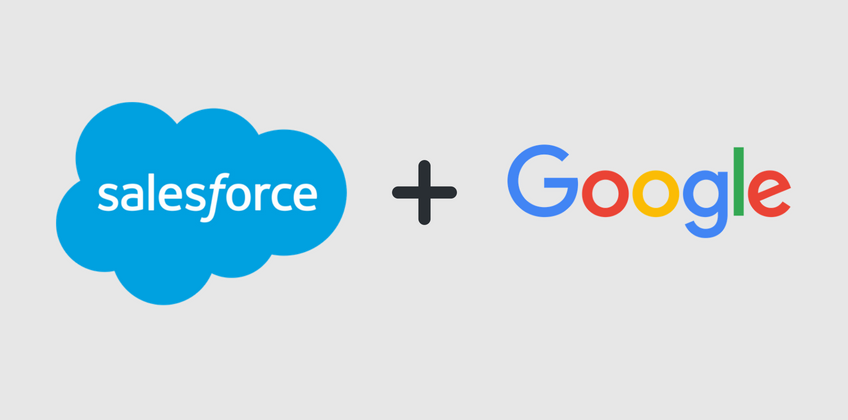Salesforce has been working with Google in an effort to enhance their marketing effectiveness. Both the tech giants worked together utilizing respective platforms and strengths. After six months of endeavor, Salesforce Marketing Cloud went live with its first Google Analytics 360 integrations.
The recent integrations are designed in order to help enterprises understand their customers and make more impactful marketing decisions using Salesforce’s robust marketing platform integrated with Google’s Analytics 360 web analytics solution. Salesforce’s president and chief product officer Bret Taylor announced this along with new AI and commerce cloud initiatives at the inaugural Salesforce Connections conference in Chicago. The conference was focused on the B2C marketing and drew around 10,000 attendees.
With this new initiative, marketers will be able to analyze cross-channel engagement data in one place. There will be a single customer life-cycle analytics dashboard placed in the Marketing Cloud. Marketers can visualize how their email, mobile, and web interactions are performing from the dashboard itself.
The Salesforce-Google partnership was first announced by Salesforce founder & CEO Marc Benioff at Dreamforce 2017 conference last year November. Addressing the Salesforce Connection attendees on Google integration, Taylor told ” Competing for customers today goes beyond building the best product. It requires creating connected digital experiences that transcend individual touch points. It is the greatest opportunity that we’ve had in generations to connect to consumers.”
As per a recent Salesforce State of the Connected Customer report, 80% of the customers believe that the experience a company offers is as important as its products or services, and 57% of the customers have stopped purchasing from a brand because another brand offered a better experience. Still, there is a large number of companies who are struggling to match customer’s expectations for a faster service backed by excellent experiences. This can be only driven by disruptive technologies.
The beta trail which will be starting in the third quarter of this year will allow marketers to create audience segments like category buyers, loyalty members and abandoned browsers in Google’s Analytics 360 before connecting & engaging those audiences within Marketing Cloud. The dashboard will show products that are getting viewed but not purchased. This will help the marketers create new audience groups based on that information in Analytics 360 and publish it to the Marketing Cloud. They can even re-target those audiences by offering additional information or discounts via email or mobile notifications.
Taylor’s keynote also directed on new innovations for the Salesforce Einstein artificial intelligence for CRM offerings that is developed into the Salesforce platform as the new marketing, commerce, and service innovations. The latest Salesforce Marketing Cloud Einstein innovations are Einstein Segmentation & Einstein Splits. Einstein Segmentation will analyze billions of customer signals by leveraging machine learning and pattern analysis to unlock customer behavior and identify new customers to reach with more personalized messages. On the other hand, Einstein Splits allows marketers to build personalized customer journeys based on Einstein engagement. Einstein Split stats will land in the Marketing Cloud Journey Builder to examine customer paths and messaging tactics.
Taylor also highlighted new marketing, commerce, and service innovations.
- Commerce Cloud B2B Commerce is designed to deliver customer-focused shopping experiences to business buyers with B2B-specific functionality.
- Marketing Cloud Interaction Studio empowers companies to visualize, analyze and manage contextually relevant experiences to consumers, which includes offers, promotions, discounts and much more across a brand’s online and offline channels.
- Service Cloud LiveMessage, which expands SMS support globally to 17 countries in APAC, EMEA and Latin America, including Singapore, France, and Brazil, allows companies to communicate with their customers through a two-way mobile messaging. Customers can message a brand to ask any question, schedule a delivery time, initiate a return, or any kind of feedback.
In the end, Salesforce has announced new integration pilots between Service Cloud and Commerce Cloud designed to increase customer satisfaction and facilitate customer service to become agile by accessing commerce data in real-time. Commerce Journeys brings together Marketing Cloud and Commerce Cloud to help marketers to start transactional and behavioral journeys based on customer actions, such as dropping shopping cart, confirming an account or making a purchase.
Source: Salesforce







